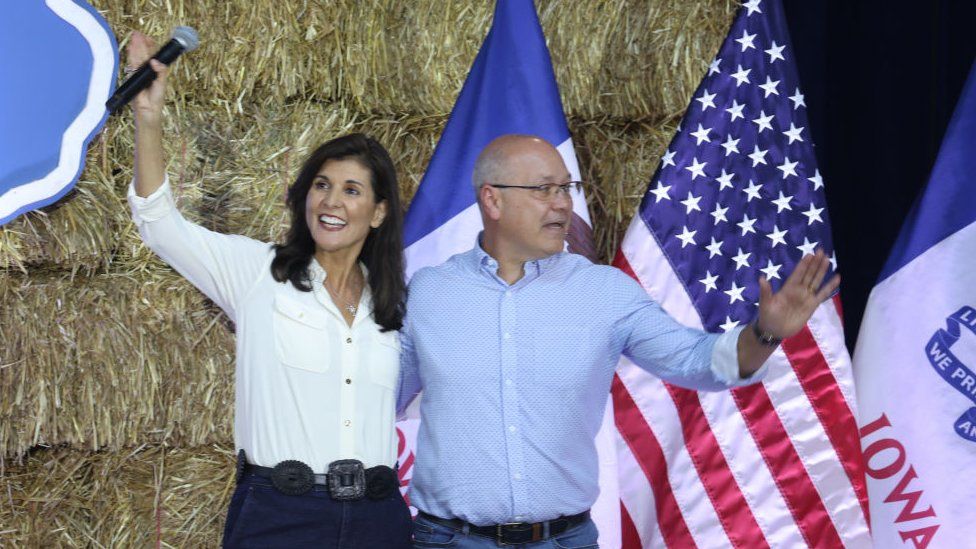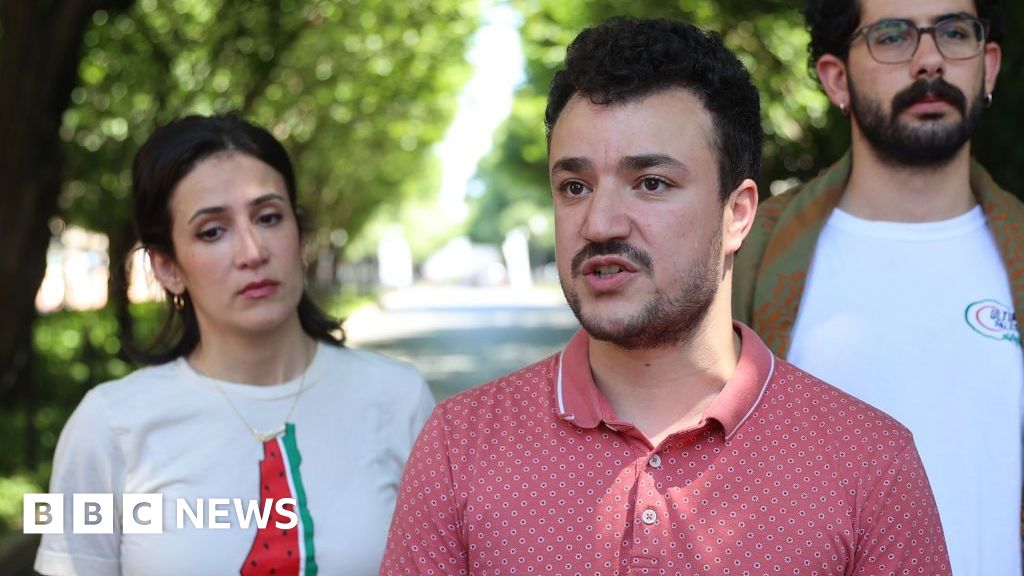ARTICLE AD BOX
 Image source, Getty Images
Image source, Getty Images
Nikki Haley thinks her husband looks more like a Michael than a Bill
By Madeline Halpert
BBC News, New York
The circumstances surrounding the name change of Michael Haley, at the suggestion of his wife and Republican politician Nikki Haley, has sparked debate about names and identity.
Do we resemble our names? And if so, what's the difference between a Bill and a Michael?
These are the questions being asked after an excerpt from Republican presidential candidate Nikki Haley's 2012 book Can't is Not an Option resurfaced on social media this week.
In it, Ms Haley said that when she first started dating her husband, South Carolina National Army Guard Michael Haley, he went by Bill.
"You just don't look like a Bill," Ms Haley said she told him.
Instead, Ms Haley decided, his middle name was a better fit.
"From that point on, I started calling him Michael, and all my friends did the same," she wrote. "He looks like a Michael."
"Before we know it, he was universally known as Michael," she added.
It's rare that an adult changes their name in this way, naming specialists told the BBC, and unusual to go from one commonly used name to another.
"There are so many Williams and Michaels of different ages, how could you say who was a Bill and who was a Michael?" said Sophie Kihm, a psychologist and editor of naming website Nameberry.
With this kind of switch so uncommon, most people have names picked by their parents.
A name often says more about the parents and family who chose it rather than the child to whom it was given, though it can still play a role in a child's identity and personality.
As a result, some parents go to great lengths to choose one, paying hundreds of dollars to consultants as they search for names that both "stand out and fit in", said Colleen Slagen, a baby name consultant.
Some parents come looking for a "CEO" name, she said - one that their child could grow into that would look polished on a resume. The classics are Oliver and James for boys, Margot and Charlotte for girls.
Others are more focused on tradition or values, Ms Kihm said, like Sophie or Benjamin.
"We know stuff about political leanings through names, how old someone's parents might have been when they had them, location and what part of the country they're from," she said.
For instance, she said, liberal parents tend to choose more traditional names for their children because they tend to be older when they have them.
Conservative parents may be more likely to choose a nickname like "Josie" both because they tend to have children younger and because it's a more common name in the southern part of the US, where Republicans have a stronghold on many states.
Watch: Haley leaves out slavery as a cause of US Civil War
Whatever the choice, we have a tendency to grow into these names, some research has shown.
In one study, researchers asked more than 1,000 participants to match a picture of a person to a name from a list. Controlling for factors like race and age, researchers found humans were better able to pick the right name than if they chose randomly, suggesting that on some level, humans do resemble their names.
That's in part because people tend to pick names for their children associated with the background they come from, said Yonat Zwebner, an author of the study and a Reichman University assistant professor.
In turn, people tend to treat them in accordance with the stereotype associated with their name, which can change their personality and appearance, she said.
"It could be the hairstyle, the facial expression, it could be all kinds of things that are related to facial appearance," Dr Zwebner said.
The idea that people grow up to embody their names is a phenomenon called "nominative determinism", Ms Kihm said.
Ms Slagen said she believes most people grow to like their names because their personality becomes it, rather than their name dictating what their personality becomes.
It's difficult to say whether a name change so late in life played a role in Mr Haley's personal development.
The switch to his middle name might have allowed him to carve out some space for his own identity, as his adoptive father went by Bill Haley, too, Ms Kihm said.
Still, names are strongly tied to people's identities, so it seemed peculiar that such a personal decision be made by someone else for him, she said.
But she added: "He seemed to roll with it pretty well, and Bill and Michael are relatively similar anyways."

 1 year ago
62
1 year ago
62








 English (US) ·
English (US) ·